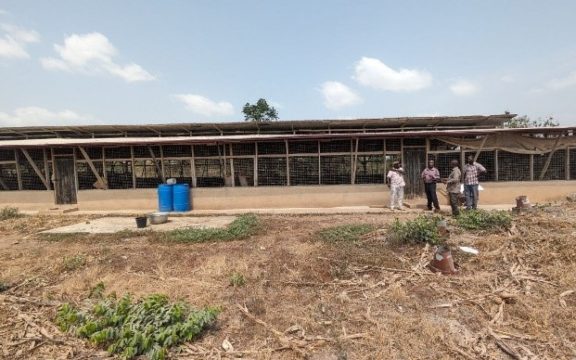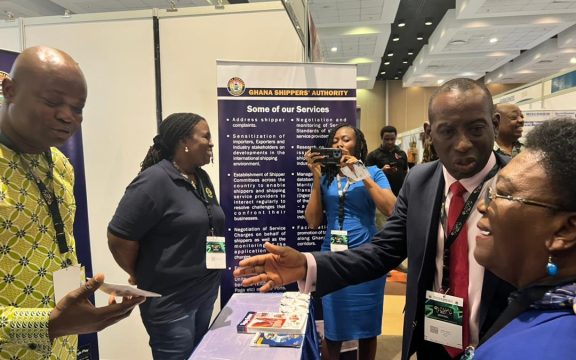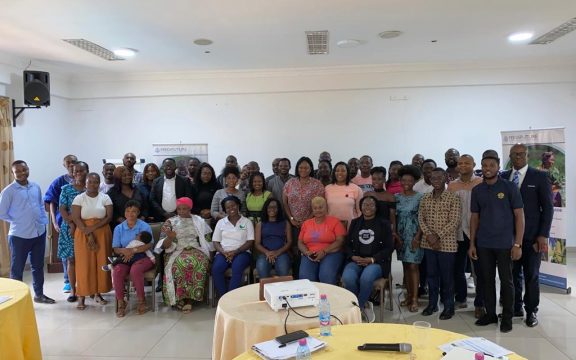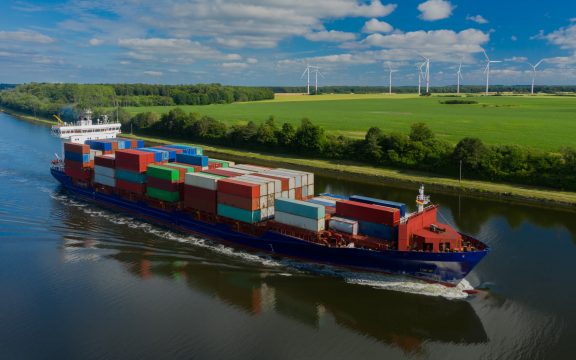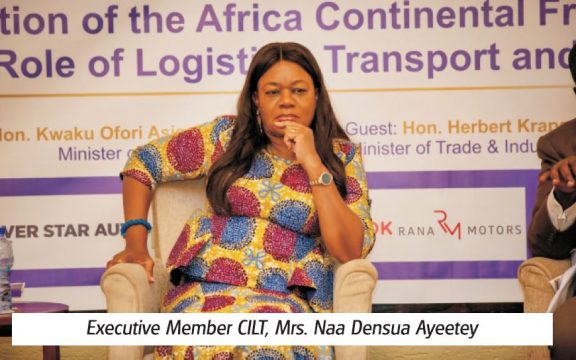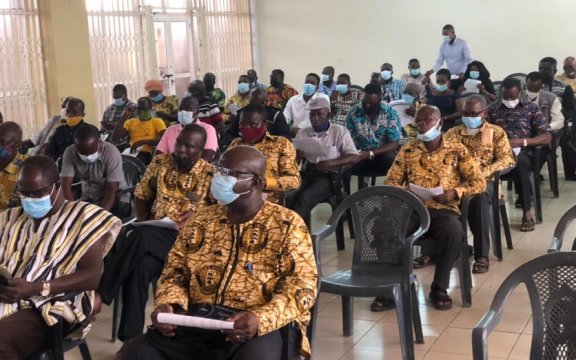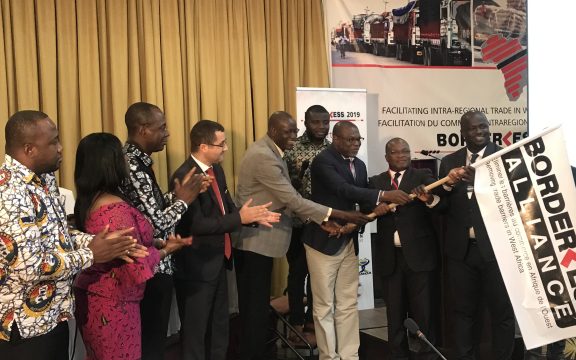 Ghana has once again cemented her status as the gateway to Africa and a major player in the maritime trade sector on the continent and beyond. This was after the West African country partnered Norway to successfully push through a resolution in the UN Security Council dubbed the “Ghana-Norway resolution on Maritime Security in the Gulf of Guinea”. (Resolution 2634).
Ghana has once again cemented her status as the gateway to Africa and a major player in the maritime trade sector on the continent and beyond. This was after the West African country partnered Norway to successfully push through a resolution in the UN Security Council dubbed the “Ghana-Norway resolution on Maritime Security in the Gulf of Guinea”. (Resolution 2634).
The resolution was adopted on 31st May 2022 by the UN Security Council in a meeting that lasted less than 30 minutes. The resolution is key to Ghana’s national security, the livelihoods of Ghana’s coastal and fishing communities, foreign investments in the oil and gas industry, shipping coasts as well as trade, and the overall economy of Ghana.
Key aspects of the collaboration between Ghana and Norway resolution was to address the need to criminalize and prosecute acts of piracy and armed robbery at sea under domestic laws, as well as impress on the UN Secretary-General to report on current efforts, including an assessment of the possible links between piracy and armed robbery at sea in the Gulf of Guinea and terrorism in West Africa, and also proffer recommendations for enhanced efforts and support for a national and regional response.
This milestone is significant for many reasons because this year marks exactly 10 years since the UN Security Council adopted its last resolution on maritime piracy and armed robbery in the Gulf of Guinea [resolution 2039 (2012)].
The Gulf Of Guinea and its challenges
Ghana’s decision to partner Norway and solicit the support of members of the UN Security Council was preceded by the launch of the “Stable Seas Report” by the United Nations Office for Drugs and Crime in 2021. As revealed in the report, the Gulf of Guinea had overtaken the Gulf of Eden as the epicentre of piracy with 130 maritime kidnappings out of the 135 global incidents in 2020.
This is in addition to the total of 40 kidnapped seafarers on board ships recorded globally in the first quarter of 2021 with an estimated cost of over a billion dollars, including the cost of national efforts to police the seas.
Data from the International Maritime Organization reveals that 204 piracy attacks occurred off Nigeria’s coast between 2006 and 2012, as well as 17 in Ghana and 16 in Côte d’Ivoire, plus similar incidents as far west as Liberia and as far south as Angola. In 2013, the Gulf of Guinea was the site of 19% of all recorded global piracy incidents.
Records also show that more than 100 ships crisscross the Gulf of Guinea daily and the resulting piracy costs coastal states about $2 billion a year.
 According to the International Maritime Bureau, The Gulf of Guinea (which is located on the north-easternmost part of the tropical Atlantic Ocean between Cape Lopez in Gabon, north and west to Cape Palmas in Liberia) is the most dangerous stretch of sea for pirate attacks in the world. This was reiterated by the Norwegian Ambassador and Permanent Representative to the United Nations Mona Juul following the adoption of the resolution of the Ghana-Norway resolution. “The Gulf of Guinea remains the most dangerous place in the world for ships, seafarers and maritime trade. Against that backdrop, the resolution aims to increase security.” She noted.
According to the International Maritime Bureau, The Gulf of Guinea (which is located on the north-easternmost part of the tropical Atlantic Ocean between Cape Lopez in Gabon, north and west to Cape Palmas in Liberia) is the most dangerous stretch of sea for pirate attacks in the world. This was reiterated by the Norwegian Ambassador and Permanent Representative to the United Nations Mona Juul following the adoption of the resolution of the Ghana-Norway resolution. “The Gulf of Guinea remains the most dangerous place in the world for ships, seafarers and maritime trade. Against that backdrop, the resolution aims to increase security.” She noted.
Why The Focus on The Gulf of Guinea?
Armed robbery and attacks on shipping vessels in the Gulf of Guinea have been hugely successful and attractive to pirates and other unscrupulous persons due to a number of reasons. The Gulf of Guinea generates a gross domestic product (GDP) of $112 billion, exports of about $45.5 billion and imports of about $31.63 billion, from about 20 countries in West and Central Africa whose coastal lines fall within the jurisdiction. All these countries serve as ports for landlocked nations just as it happens with Burkina Faso, Mali and the likes whose import and export pass through the Tema and Takoradi ports in Ghana.
 The Gulf of Guinea is endowed with abundant natural resources such as natural gas, gold, diamond and crude oil. Countries from the Gulf of Guinea, including Ghana, Nigeria, Angola, Equatorial Guinea, Cameroon, Republic of Congo, Gabon, and Chad are rich oil producers. All these existing conditions make the Gulf of Guinea fertile for pirates who thrive in their activities as a result of weak maritime police regimes and a general lack of attention and political will to deal with such issues.
The Gulf of Guinea is endowed with abundant natural resources such as natural gas, gold, diamond and crude oil. Countries from the Gulf of Guinea, including Ghana, Nigeria, Angola, Equatorial Guinea, Cameroon, Republic of Congo, Gabon, and Chad are rich oil producers. All these existing conditions make the Gulf of Guinea fertile for pirates who thrive in their activities as a result of weak maritime police regimes and a general lack of attention and political will to deal with such issues.
Despite all these factors that attract pirates to the region, trade goes on regardless. The region is relatively close to the main markets of Europe and America, which gives it the upper hand in terms of the movement of goods and people using larger vessels, at a cheaper cost.
Resolution (2634) and AfCFTA – The Recommendations
Ghana is well-positioned as the gateway for landlocked Mali, Burkina Faso and Niger. The Tema and Takoradi ports have been used for freight enroute to Côte d’Ivoire. These happenings mean Ghana is on her way to becoming a regional hub for trade. And with the Africa Continental Free Trade Area (AfCFTA) already underway, the prospects are looking brighter.
However, the threats posed by piracy, armed robbery and kidnapping of sea farers cannot be understated as it disrupts plans to bolster regional trade. The high rate of insecurity in the region is worsened by the steady growth of the oil industry which attracts pirates, coupled with weak naval capacity.
These are red flags for the growth of Ghana’s maritime sector and pose serious challenges to the sustenance of the AfCFTA. The repercussions of a prolonged period of piracy in the Gulf of Guinea, taking into consideration its importance to the countries that lie along the West and Central coastline, is mostly socio-economic downfalls such as poverty, low institutional development, unemployment, political unrest and decline in the fishing sector among coastal communities.
In order to suppress this menace and maintain the dignity of AfCFTA, Member states must make it a priority to uphold the recommendations of the Ghana-Norway resolution on Maritime Security in the Gulf of Guinea”. (Resolution 2634).
These include criminalizing piracy and armed robbery at sea under the domestic laws of each country in the region, investigating and prosecuting or extraditing, in accordance with applicable international law, including international human rights law, perpetrators of piracy and armed robbery. This should extend to those who incite, finance or intentionally facilitate such crimes, including key figures of criminal networks involved in piracy and armed robbery at sea who plan, organize, facilitate, finance or profit from such attacks.
There is also the need for financial assistance from international bodies to support national and regional efforts at dealing with the canker and an overall comprehensive response to prevent and suppress piracy and tackle its underlying causes.
Key Institutions such as the Gulf of Guinea Commission, Economic Community of Central African States (ECCAS) and Economic Community of West African States (ECOWAS) should be empowered to lead the movement in securing the safety of vessels that do business on the Gulf of Guinea. There is also the need to uphold already existing regional arrangements, such as the African Charter on Maritime Security, Safety and Development in Africa, the Africa Maritime Transport Charter and the Convention for Cooperation in the Protection, Management and Development of the Marine and Coastal Environment of the Atlantic Coast of the West, Central and Southern African region.
The Ghana-Norway Resolution on Maritime Security in the Gulf of Guinea is an achievement that mirrors the hard work and dedication of Ghana’s Ministry of Foreign Affairs and Regional Integration. It is also a clear indication that Ghana has taken full advantage of her fixed-term Non-Permanent membership of the UN Security Council to draw the attention of the world to the injustice meted out to shipping lines whose work is crucial to the global economy, a remarkable achievement whose journey begun in January 2022.




